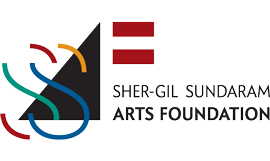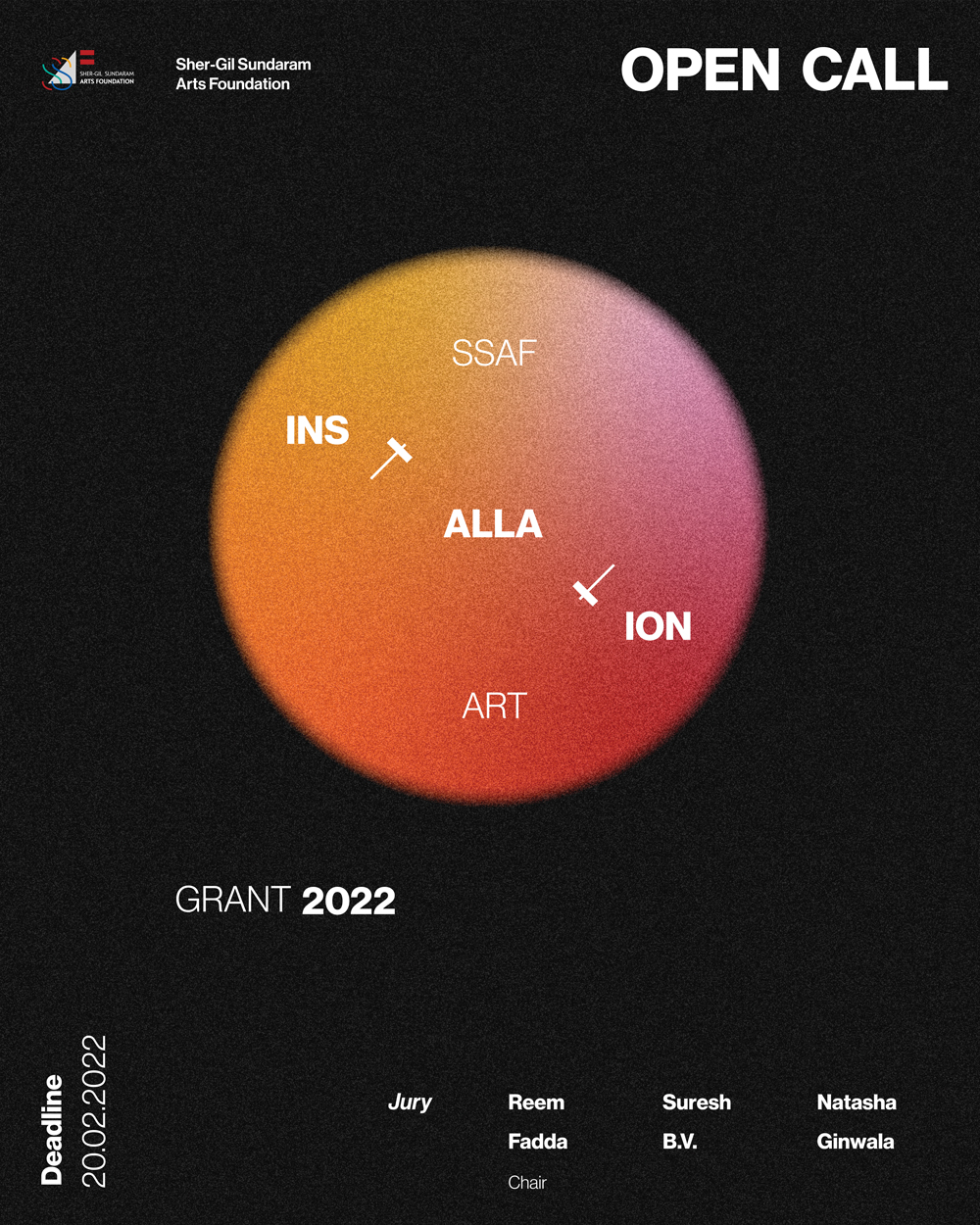
Sher-Gil Sundaram Arts Foundation (SSAF) is pleased to invite applications for the second edition of the SSAF Installation Art Grant instituted in 2019. The SSAF Installation Art Grant is premised on the fact that Indian art has been energized since the 1990s by what is broadly termed installation art, but that there has been limited infrastructural and institutional support for such projects.
SSAF offers an abbreviated set of propositions that will, we hope, generate well developed project proposals and a critical discourse before and after the Grant.
Installations foreground material structures, sometimes articulated as object configurations and dispersed fragments and at other times, architecturally. Within the parameters of the concept and term, an installation may construct a mise-en-scène for sculptural staging. It may present archival (photographic and documentary) data for conceptual and pedagogical purposes. It may succeed in imagining community and provoke social action.
On another plane, an installation may create a fluid spatiality and phenomenology for heightened affect. This may entail additional use of film and video, multimedia, including computer-generated fictions, kinetic forms, light, sensors and sonic elements – technologies designed to draw the spectator into an immersive and interactive environment.
Installation projects are often contextual; in selected instances – when the elements deployed are inalienable from the selected site (whether warehouse, museum, landscape or ruin) – an installation will be considered site-specific. This is a distinct feature of installation art but not definitional, nor is it a mandatory condition for the SSAF Installation Art Grant.
The mandate of the SSAF Installation Art Grant is wide. The jury for the grant will keep all these aspects in mind when reviewing the projects. Artist-applicants will suggest the site, the means deployed to construct the installation, and explain its conceptual, technological, material and situational significance.
Details of the Grant and Application Procedure
The SSAF Installation Art Grant will support an individual artist or an artists’ collective to conceptualize and produce a new work within the broad parameters of installation art as outlined above.
Duration of the Grant and Grant Amount
The duration of the grant is 18 months.
The comprehensive grant amount is up to ₹ 8 lakhs. This amount is expected to cover all expenses pertaining to the project including research visits, production, travel, shipping/freight, installation and de-installation of the project. The artist will be required to submit a detailed budget at the time of the application. The time frame of the research, production, installation and de-installation phases will have to be clearly outlined in the application form.
The grant is a production grant only and does not have the provision of an artist’s fee.
While the selected proposal will receive financial support from SSAF, all logistics related to the project will be the responsibility of the artist. Arrangements and negotiations relating to the selected site, as well as the execution and display of the installation, will be carried out by the artist. The durational aspect of the actual installation will be proposed by the artist in consultation with SSAF and on-site/institutional administrators. The installation in all its constituents will belong to the artist and the artist will be responsible for the de-installation and storage of the work.
Eligibility
- Individuals of Indian origin residing in India, or collectives whose members are Indian nationals residing in India. Preference will be given to applicants who lack access to networks of national and international sponsorships.
- Artists who currently do not hold a grant or a residency where the proposed project has been developed.
Requirements
- The project must be located in India. Location details, if the project is site-specific, need to be specified in the proposal.
- The project should be within the parameters of installation art.
- The proposal should include as much information about the project as possible, enabling us to gain greater clarity about the potential and practicality of the project.
- The project should be feasible in terms of costs and scale, and should meet the timeline set by the artist.
Deliverables
The selected candidate will be expected to:
- Present a concise schedule and budget for the research, production, installation and de-installation phases of their proposed projects.
- Submit regular quarterly project and budgetary written updates.
- Submit a final written report and photo documentation of the finished project.
- Be responsible for maintaining accounts according to the financial guidelines set by SSAF.
- Be responsible for all aspects of production, development and setting up of the project including transportation, shipping, dismantling and storage of work after the project ends.
- The SSAF Installation Art Grant should be credited in all future exhibitions and publications.
Application Guidelines
- Applicants must complete the application form online and upload supporting documents and materials to the relevant sections of the form.
- In case the applicant is unable to complete the form online and upload supporting documents and materials in the allocated sections of the online application form, they may contact us at ssaf.installationart@gmail.com.
Documents/Materials (to be uploaded to the Application Form)
- Artist statement (A written statement of 300–500 words, outlining how the applicant expects to benefit from the grant)
- Resumé (should not be more than 3 pages)
- Portfolio of previous projects with images and descriptions (one previously executed installation art project must be included)
- Project proposal (Concept note of 1000–1500 words, images if required to support the note, and shareable links to video, audio and other time-based media can be included in the proposal)
- Detailed timeline for the development of the project
- Detailed budget for the project
- Name and contact details of one referee
- [Optional] Additional support material: Materials such as reviews and catalogues can be included. The applicant can upload up to three such items.
Budgetary Guidelines
Please include as detailed a budget as possible and include the following headings where applicable:
- Research – travel, accommodation, food
- Books
- Material costs
- Fabrication costs
- Installation costs of the completed project on site (including costs of electricity etc. where applicable)
- Logistical costs (including transport, de-installation etc.)
Selection Process and Timeline
- Deadline for applications: 27 February 2022.
- A three-person jury will shortlist candidates for interviews.
- The jury will conduct online interviews with the shortlisted candidates to select a proposal for the grant. The grantee announcement will be made thereafter in a public programme.
- The duration of the grant will be 18 months.
Jury
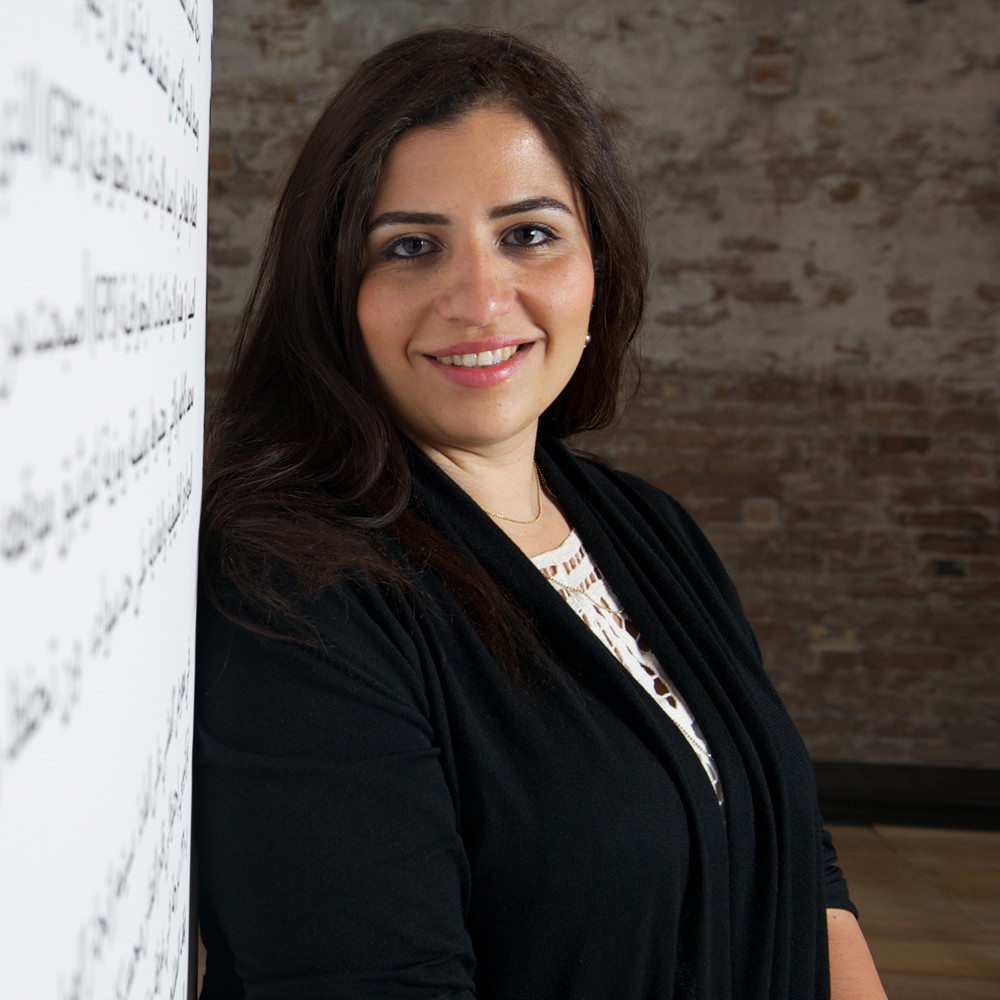
Reem Fadda (Jury Chair) is a curator and art historian. From 2010 to 2016, Fadda worked at the Guggenheim Museum as Associate Curator, Middle Eastern Art, Abu Dhabi Project. From 2005 to 2007, Fadda was Director of the Palestinian Association for Contemporary Art (PACA), Ramallah and served as Academic Director for the International Academy of Art Palestine, Ramallah. She has curated many international exhibitions and biennials, including Jerusalem Lives (Tahya Al Quds), The Palestinian Museum, Birzeit (2017); Not New Now, 6th Marrakech Biennale, (2016) and the United Arab Emirates National Pavilion, 55th Venice Biennale (2013). Fadda was awarded the eighth Walter Hopps Award for Curatorial Achievement in 2017 and is a 2019 Fellow of the Young Global Leaders of the World Economic Forum. She currently works as Director of the Cultural Foundation in Abu Dhabi.
Photo by Sofia Dadourian
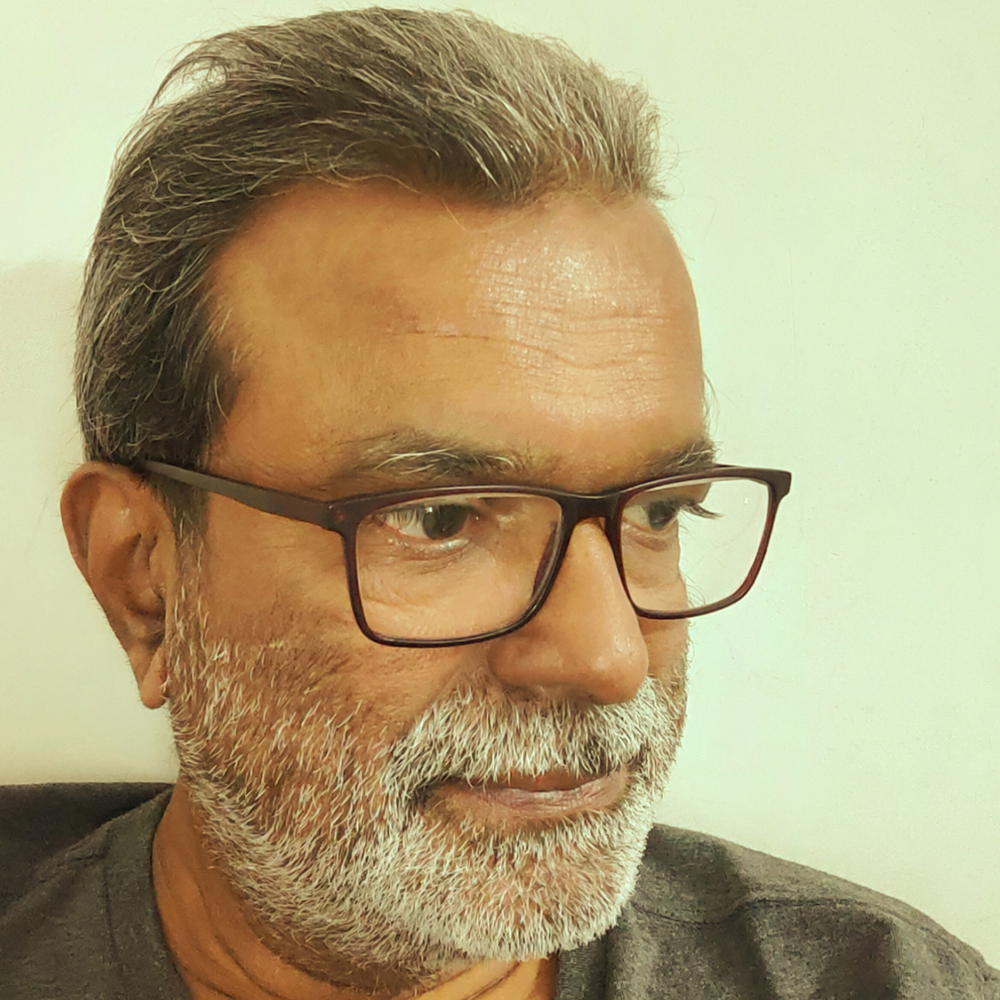
Suresh B.V. holds an MA in Painting from Royal College of Art, London (1985–87), a post-diploma and diploma in Painting from Faculty of Fine Arts, M.S. University Baroda (1979–85) and formal art training from Ken School of Arts, Bangalore (1976–78). He has taught at M.S. University Baroda as full-time faculty, and is currently the Head of Fine Arts Department, S.N. School, University of Hyderabad. Suresh has held several solo shows including Canes of Wrath at Kochi Muziris Biennale (2018) Chronicles of Silence (2015) at Vadehra Art Gallery, New Delhi and Sumukha Gallery, Bangalore, Khamoshi Ki Daastan (2015) at Faculty of Fine Arts, Baroda, Facilitating the Beast (2006) at Vadehra Art Gallery, New Delhi. He has participated in international and national group exhibitions which include, Hong Kong Art Fair, China, Destination Asia: Non-Strict Correspondence at Almaty, World Social Forum at Nairobi, and Video Art, South Africa, Aesthetic Bind, Cabinet Closet Wunderkammer at Chemould Gallery, Mumbai, Back to School at Tao Gallery, Mumbai and Pallete Gallery, New Delhi, Mechanisms of Motion at Anant Art, New Delhi, Are We Like This Only at Vadehra Gallery, New Delhi. Suresh has also done several collaborative projects with fellow artists and theatre persons, illustrated children’s books, participated in art camps and conducted numerous workshops on video and intermedia in colleges.
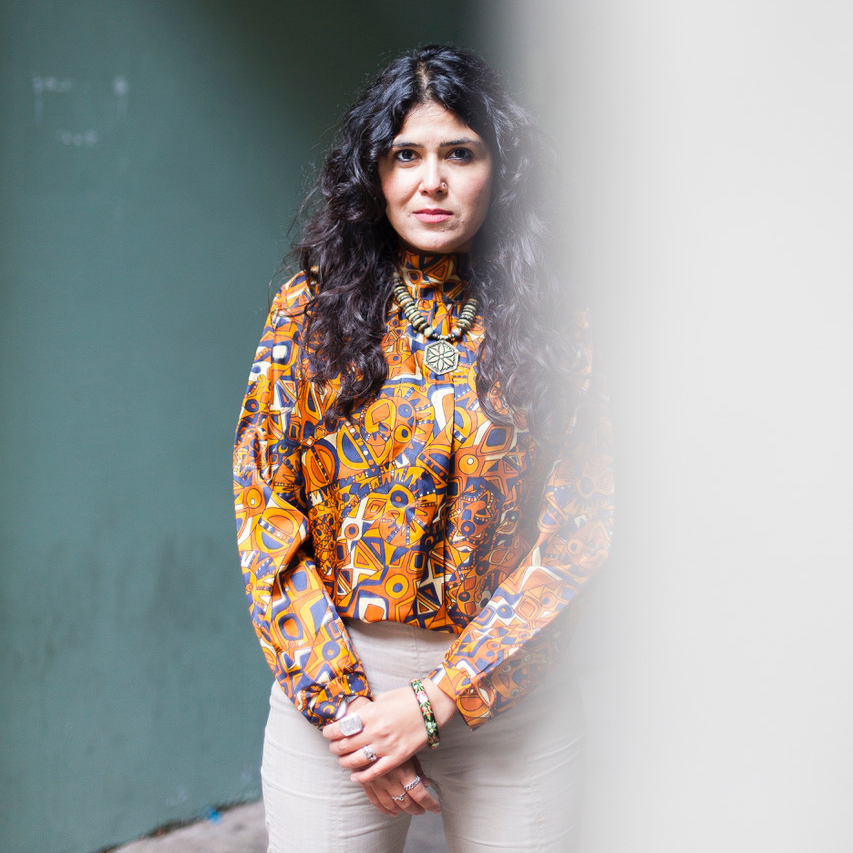
Natasha Ginwala is a curator, writer and editor based in Colombo and Berlin. Ginwala is Associate Curator at Gropius Bau, Berlin; Artistic Director of Colomboscope in Sri Lanka and the 13th Gwangju Biennale with Defne Ayas (2021). Ginwala has curated Contour Biennale 8, Polyphonic Worlds: Justice as Medium and was part of the curatorial team of documenta 14, 2017. Since joining Gropius Bau in 2018 she has curated a number of exhibitions including survey shows of Bani Abidi and Akinbode Akinbiyi. Other recent projects include Shadow Circus at SAVVY Contemporary (with Bonaventure Soh Bejeng Ndikung); Arrival, Incision. Indian Modernism as Peripatetic Itinerary in the framework of “Hello World. Revising a Collection” at Hamburger Bahnhof – Museum für Gegenwart, Berlin, 2018; Riots: Slow Cancellation of the Future at ifa Gallery Berlin and Stuttgart, 2018; My East is Your West at the 56th Venice Biennale, 2015; and Corruption: Everybody Knows with e-flux, New York, 2015. Ginwala was a member of the artistic team for the 8th Berlin Biennale for Contemporary Art, 2014, and has co-curated The Museum of Rhythm, at Taipei Biennial 2012 and at Muzeum Sztuki, Lodz, 2016–17. Ginwala writes regularly on contemporary art and visual culture. Recent co-edited volumes include Stronger than Bone (Archive Books and Gwangju Biennale Foundation) and Nights of the Dispossessed: Riots Unbound (Columbia University Press).
Photo by Victoria Tomaschko
